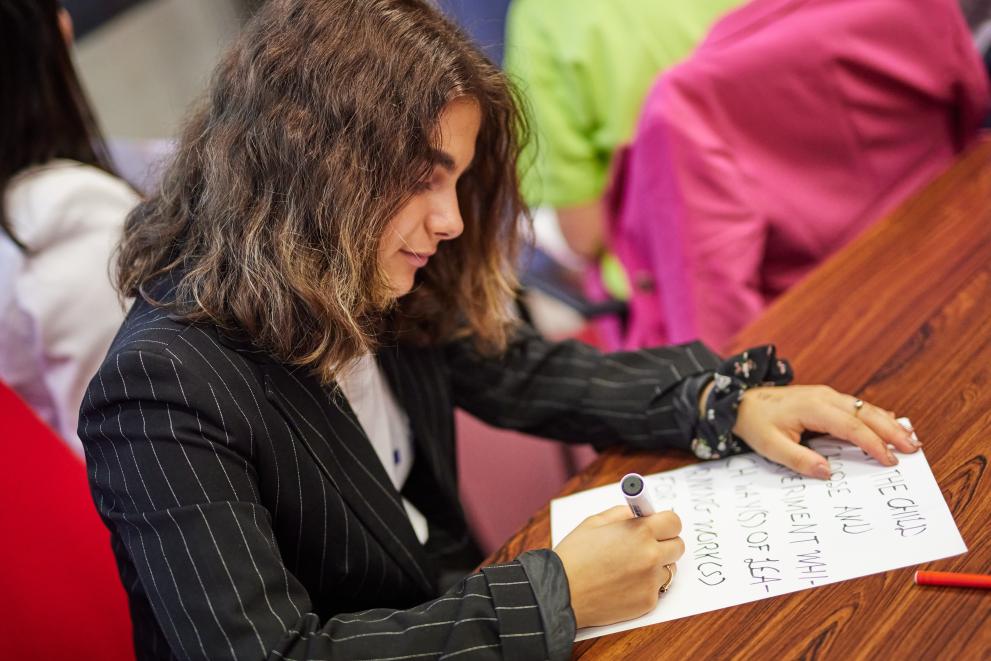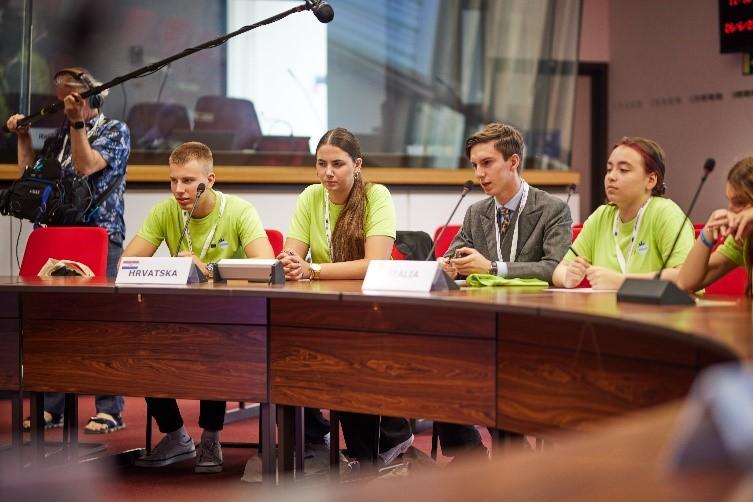We provide a safe space for children and teenagers to share their opinions on matters that impact their lives through activities such as meetings, questionnaires, and workshops.
We communicate on the children’s behalf with European Union institutions and other stakeholders with the aim of including their views in EU policy and decision-making.
Objectives
The Platform is dedicated to making sure children are involved and heard. Here are our main goals:
- Empower children: Help children connect with decision makers, discuss important topics, and learn about their rights as EU citizens.
- Policy influence: Make sure what children think is included in EU rules and actions.
- Capacity building: Give training and tools to children and adults to help them work together.
- Inclusive participation: Make sure all children, especially those from different backgrounds, can join in.
- Awareness raising: Tell everyone why it’s important to listen to children.
- Monitoring and evaluation: Check how well children's voices are being heard and make improvements.
- Stakeholder mapping: Finding out who can help and how.
- Engagement: Talking and working with other organisations and adults.
- Development of materials: Making helpful guides and tools.
Children are our members
The EU Children's Participation Platform is for all children and teenagers under the age of 18, living in the EU. The Platform Secretariat brings together:
- existing children’s parliaments;
- children’s councils (at the natiional, local, city or municipality level);
- ombudspersons for children, and;
- organisations supporting children in being heard.
How we work
We help children understand the European Union, children's rights, democracy, and policymaking. This empowers children to make informed decisions about their participation and views.
Discussing important topics: We engage children through digital and in-person activities to make sure they understand the themes and the decision-making process.
Collecting feedback: Feedback from children guides our Work Plan. For example, in the 2025-2026 Plan, children identified key focus areas that they found important such as equal opportunities and social inclusion, mental health and well-being, online safety, and climate action.

Identifying opportunities: Integrate children's ideas into EU policies, making sure children’s voices are heard. Children and adults contribute together through our General Assembly, Children’s Panel and Advisory Board.
Taking action: Our discussions with children are then turned into actionable measures, such as creating Recommendations on child protection systems.
Contributing to materials: Children contribute to the design of resources that are child-friendly and interactive. Resources are made available on the Platform's website and can be used by all children, organisations, and stakeholders interested in the topics.

How children contribute
The Platform organises activities and trainings for child members to participate and contribute. For example, children can be involved in the Children’s Panel, Advisory Board, and General Assembly meetings.
The Platform also organises online and in-person surveys and discussions to bring together larger groups of children.
In these activities, children:
- share their views on issues related to EU policy that concern them
- listen to others and learn how to make change
- experience democracy in action
- learn about children’s rights
- help to shape the future of the EU itself
The Lundy Model of child participation and insights from the latest research and practice guide these efforts, ensuring that children's views are heard and respected.

